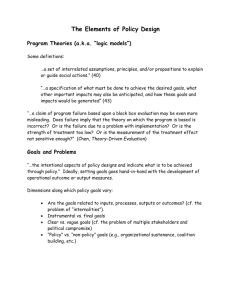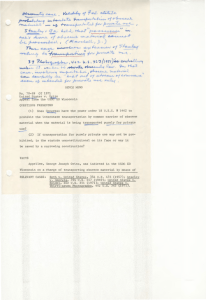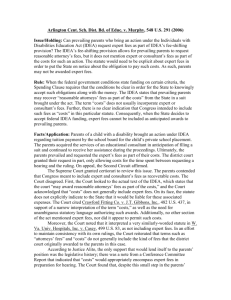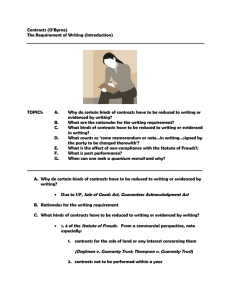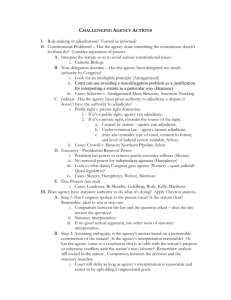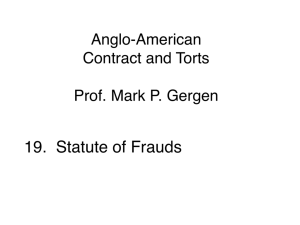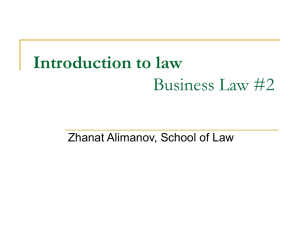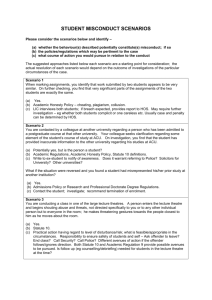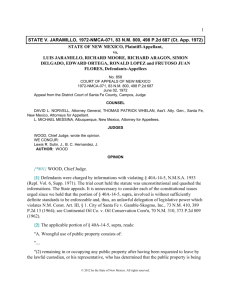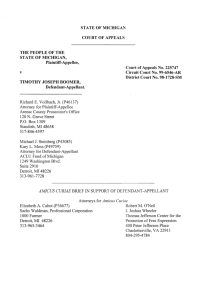Documents PDF
advertisement
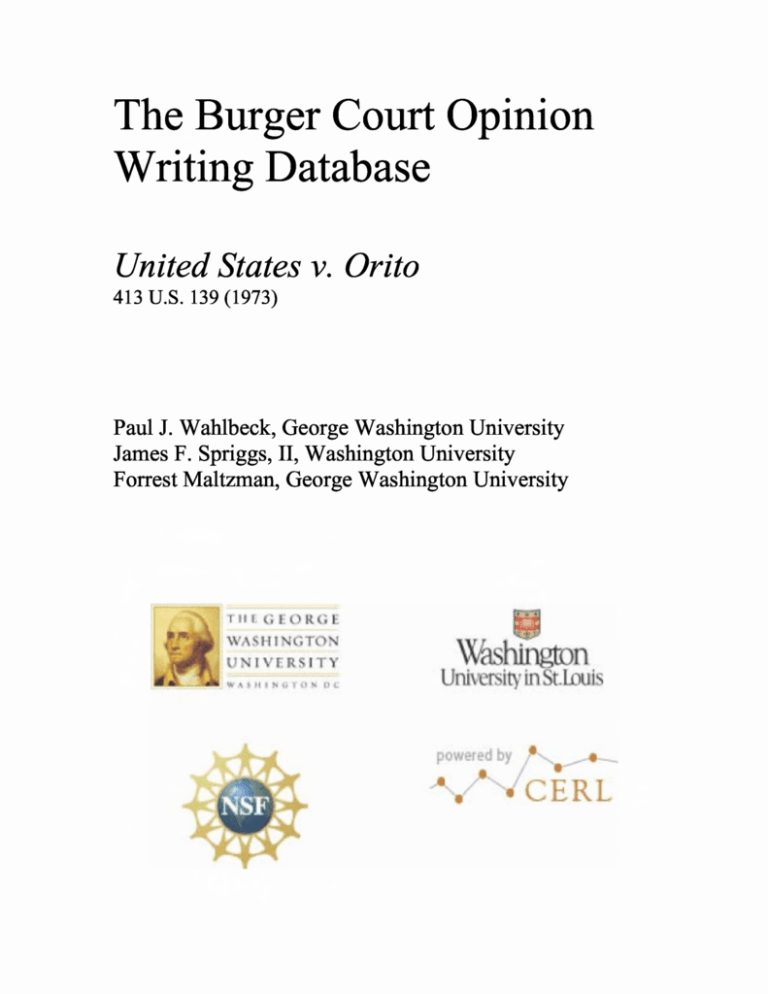
The Burger Court Opinion Writing Database United States v. Orito 413 U.S. 139 (1973) Paul J. Wahlbeck, George Washington University James F. Spriggs, II, Washington University Forrest Maltzman, George Washington University C ittirttur (Court of tilt Iftnitre Atutto uollittoton, in. (C. zopkg . Er. m June 14, 1972 CHAMBERS OF THE CHIEF JUSTICE No. 70-69 -- U.S. v. Orito Recirculated: MEMORANDUM TO THE CONFERENCE: I have regarded our pending obscenity cases as something of a "package" problem. Here are my views on the above case on the assumption there is a court for all since they are related. Appellee Orito was arraigned in the United States District Court for the Eastern District of Wisconsin on a one count indictment charging that he had violated 18 U. S. C. 1462 in that he did "knowingly transport and carry in interstate commerce from San Francisco . . . to Milwaukee .. . by means of a common carrier, that is, Trans World Airlines and North Central Airlines, copies of [specified] lewd, lascivious, and filthy materials. " The materials specified included some 80 reels of film, with as many as eight to ten copies of some of the films. Appellee moved to dismiss the indictment on the ground that the statute violated his First and Ninth Amendment rights. The District Court granted his motion to dismiss on the ground that the statute was unconstitutionally overbroad under the First and Ninth Amendments, relying chiefly on this Court's prior decisions in Redrup v. New York, 394 U.S. 767 (1967) and Stanley v. Georgia, 394 U.S. 557 (1969). -2It is not entirely clear whether the District Court viewed the statute as overbroad because it covered transportation intended solely for the private use of the transporter, or because, regardless of the intended use of the materials, the statute extended to "non-public" transportation which in itself involved no risk of exposure to the children or unwilling adults. The United States brought this direct appeal under former 18 USC 3731. Under United States v. Thirty-Seven (37) Photographs, 402 U. S. 363 (1971) and United States v. Reidel, 402 U.S. 351 (1971) it is clear that the statute in question may be validly applied to prohibit interstate transportation intended for subsequent commercial distribution or public exhibition. On the other hand, in United States v. 12 200-Ft. Reels of Super 8 mm. Film, et al., ante at , we have held that 19 USC 1305(a) may not be applied to prohibit importation of such materials intended solely for the private personal use of the importer. There is no logical basis to distinguish the instant case from that holding. Indeed, the privacy interests of the importer at the border would appear less substantial than the interests of a citizen travelling in interstate commerce within the United States, given the pervasive sweep of a sovereign's control of its borders. In either case, the non-public transportation of obscene materials intended solely for the private use of the transporter falls within Stanley v. Georgia. Thus, we must conclude that the statute in question cannot validly be applied to reach interstate transportation of obscene materials intended solely for the private use of the transporter. It does not follow from this -3conclusion, however, that the District Court was correct in striking down the statute on its face. Whatever "chilling" effect the statute might have is easily eliminated by limiting its applications to cases in which the transportation is for the purpose of commercial exploitation or public exhibition, as opposed to transportation for the purely private use of the person transporting it. Here, as in U.S. v 12 200-Ft. Reels, supra, the claim of private purpose and use will inevitably lose some of its force if the carrier transports multiple copies or if he exhibits to others and especially if there is any access permitted to minors. Therefore, the statute may be sustained by drawing a clear line between its constitutional and unconstitutional applications; there is no basis for invalidating the statute on its face. See Dombrowski v. Pfister, 380 U.S. 479, 491 (1965); United States v. Thirty-Seven (37) Photographs, 402 U. S. 363, 375 n.3; id. at 377 (Harlan, J., concurring); id. at 379 (Stewart, J., concurring). Accordingly, the case must be remanded for further proceedings to the end that the District Court may inquire into the government's position as to appellee's intended use of the materials. In our view, it would also be appropriate to permit the United States to obtain an amended indictment specifying the purpose with which it is charged that appellee was transporting the materials. Regards, To : T.27 1st DRAFT SUPREME COURT OF THE UNITED STATES No. 70-69 United States, Appellant, On Appeal from the United States District Court for v. the Eastern District of George Joseph Orito. Wisconsin. [June —, 1972] MR. JUSTICE DOUGLAS, dissenting. We held in Stanley v. Georgia, 394 U. S. 557, that an individual reading or examining "obscene" materials in the privacy of his home is protected against state prosecution by reason of the First Amendment made applicable to the States by reason of the Fourteenth. We said: "These are the rights that appellant is asserting in the case before us. He is asserting the right to read or observe what he pleases—the right to satisfy his intellectual and emotional needs in the privacy of his own home. He is asserting the right to be free from state inquiry into the contents of his library. Georgia contends that appellant does not have these rights, that there are certain types of materials that that the individual may not read or even possess. Georgia justifies this assertion by arguing that the films in the present case are obscene. But we think that mere categorization of these films as 'obscene is insufficient justification for such a drastic invasion of personal liberties guaranteed by the First and Fourteenth Amendments. Whatever may be the justifications for other statutes regulating obscenity, we do not think they reach into the privacy of one's own home. If the First Amendment means anything, it means that a State has no business telling a man, sitting alone in his own house, what books an7an art

